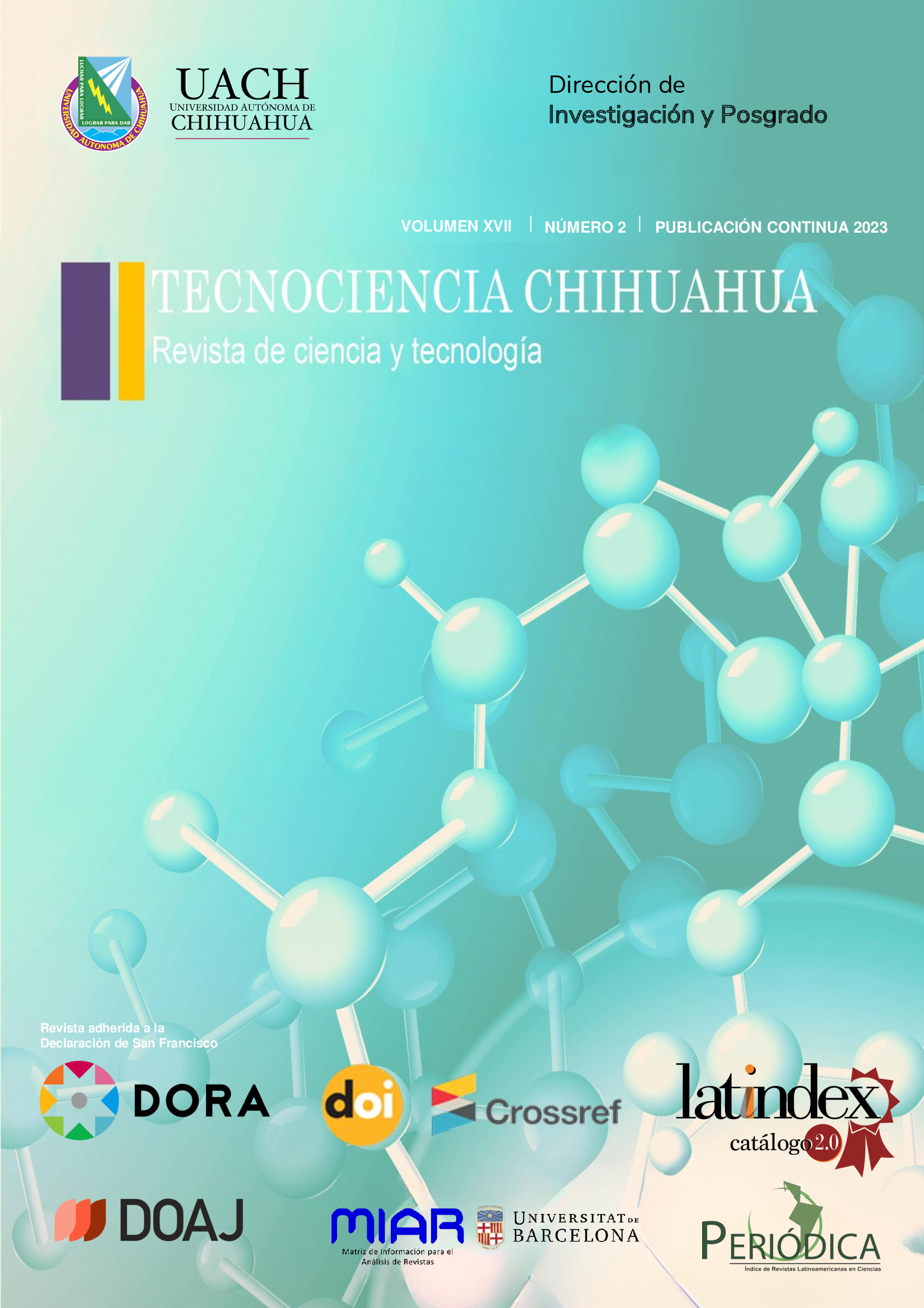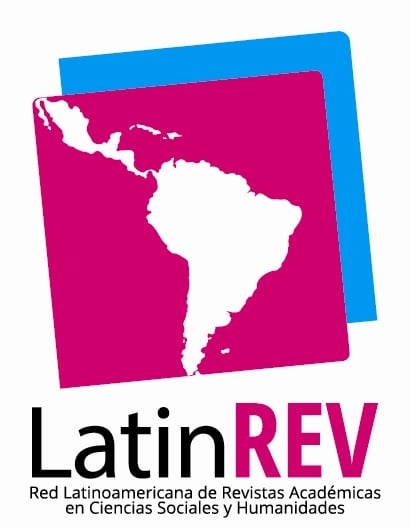Dos eventos genéticos sobresalientes en carcinoma oral de células escamosas: Variante c.-93 G>A y metilación del promotor de MLH1
Two genetic events present in oral squamous cell carcinoma: c.-93 G>A variant and MLH1 promoter methylation
DOI:
https://doi.org/10.54167/tch.v17i2.1194Palabras clave:
cáncer oral, metilación, MLH1, c.-93G>AResumen
El cáncer oral en México, se ubica en el lugar 21 en incidencia y 24 en mortalidad, sin embargo, cada década su incidencia aumenta debido a la exposición a factores de riesgo que han sido asociados a esta neoplasia: consumo de tabaco y alcohol, exposiciones virales y eventos genéticos específicos dentro de los que destacan la presencia de la variante c.-93G>A y la metilación del gen MLH1, por lo que el objetivo de la presente revisión se centra en describir el impacto de estos dos eventos en el desarrollo de cáncer oral de células escamosas (COCE). Se ha propuesto que la SNV c.-93G>A en el gen MLH1 puede estar relacionada con alteraciones en la tasa transcripcional, además de asociarse con el riesgo y pronóstico del COCE, mientras que la metilación se ha asociado con una disminución e incluso supresión de la expresión proteica. Ambas alteraciones repercuten sobre la expresión de la proteína, afectado el proceso de reparación del DNA y al ser parte esencial de fisiopatología es relevante realizar el análisis de la variante c.-93 G>A y la metilación del gen MLH1 en pacientes con carcinoma oral de células escamosas.
Descargas
Citas
Adachi, M., Ijichi, K., Hasegawa, Y., Nakamura, H., Ogawa, T. & Kanematsu, N. (2010). Human MLH1 status can potentially predict cisplatin sensitivity but not microsatellite instability in head and neck squamous cell carcinoma cells. Experimental and Therapeutic Medicine, 1(1): 93-96. https://doi.org/10.3892/etm_00000017
Ali, K. (2022). Oral cancer - the fight must go on against all odd. Evid Based Dent 23, 4–5. https://doi.org/10.1038/s41432-022-0243-1
Almangush, A., Mäkitie, AA., Triantafyllou, A., de Bree, R., Strojan, P., Rinaldo, A., Hernandez-Prera, JC., Suárez, C., Kowalski, LP., Ferlito, A. & Leivo, I. (2020). Staging and grading of oral squamous cell carcinoma: An update. Oral Oncol., 104799. https://doi.org/10.1016/j.oraloncology.2020.104799
Atlas of Genetics and Cytogenetics in Oncology and Hematology. (2023). https://atlasgeneticsoncology.org/
Chamoli, A., Gosavi, AS., Shirwadkar, UP., Wangdale, KV., Behera, SK., Kurrey, NK., Kalia, K. & Mandoli, A. (2021). Overview of oral cavity squamous cell carcinoma: Risk factors, mechanisms, and diagnostics. Oral Oncol;121:105451. https://doi.org/10.1016/j.oraloncology.2021.105451
Czerninski, R., Krichevsky, S., Ashhab, Y., Gazit, D., Patel, V. & Ben‐Yehuda, D. (2009). Promoter hypermethylation of mismatch repair genes, hMLH1 and hMSH2 in oral squamous cell carcinoma. Oral diseases 15(3): 206-213. https://doi.org/10.1111/j.1601-0825.2008.01510.x
De la Fuente Hernández, J., Muñoz Mújica, P., Patrón Bolaños, CE., Ramírez Trujillo, MA., Rojas Mercado, HJ. & Acosta Torres, LS. (2014). Aumento de la incidencia de carcinoma oral de células escamosas. Salud (i) Ciencia 20(6):636-642. https://pesquisa.bvsalud.org/portal/resource/pt/lil-796464
Evrard, C. & Alexandre, J. (2021). Predictive and Prognostic Value of Microsatellite Instability in Gynecologic Cancer (Endometrial and Ovarian). Cancers (Basel) 13(10): 2434. https://doi.org/10.3390/cancers13102434
Fennell, L. J., Jamieson, S., McKeone, D., Corish, T., Rohdmann, M., Furner, T., Bettington, M., Liu, C., Kawamata, F., Bond, C., Van De Pols, J., Leggett, B. & Whitehall, V. (2018). MLH1-93 G/a polymorphism is associated with MLH1 promoter methylation and protein loss in dysplastic sessile serrated adenomas with BRAFV600E mutation. BMC cancer 18: 35. https://doi.org/10.1186/s12885-017-3946-5
Ferlay, J., Colombet, M., Soerjomataram, I., Mathers, C., Parkin, DM., Piñeros, M., Znaor, A. & Bray, F. (2019). Estimating the global cancer incidence and mortality in 2018: GLOBOCAN sources and methods. Int J Cancer. 144(8):1941–1953. https://doi.org/10.1002/ijc.31937
Fraune, C., Rosebrock, J., Simon, R., Hube-Magg, C., Makrypidi-Fraune, G., Kluth, M., ... & Burandt, E. (2020). High homogeneity of MMR deficiency in ovarian cancer. Gynecologic Oncology 156(3): 669-675. https://doi.org/10.1016/j.ygyno.2019.12.031
Gonzalez-Ramirez, I., Ramirez-Amador, V., Irigoyen-Camacho, M. E., Sánchez-Pérez, Y., Anaya-Saavedra, G., Granados-Garcia, M., García-Vázquez, M. & Garcia-Cuellar, C. M. (2011). hMLH1 promoter methylation is an early event in oral cancer. Oral oncology 47(1): 22-26. https://doi.org/10.1016/j.oraloncology.2010.10.002
Gupta, D. & Heinen, C. D. (2019). The mismatch repair-dependent DNA damage response: Mechanisms and implications. DNA repair (Amst) 78: 60–69. https://doi.org/10.1016/j.dnarep.2019.03.009
Ito, E., Yanagisawa, Y., Iwahashi, Y., Suzuki, Y., Nagasaki, H., Akiyama, Y., Sugano, S., Yuasa, Y. & Maruyama, K. (1999). A Core Promoter and a Frequent Single-Nucleotide Polymorphism of the Mismatch Repair Gene hMLH1. Biochemical and biophysical research communications 256(3): 488-494. https://doi.org/10.1006/bbrc.1999.0368
Jha, R., Gaur, P., Sharma, S. C. & Das, S. N. (2013). Single nucleotide polymorphism in hMLH1 promoter and risk of tobacco-related oral carcinoma in high-risk Asian Indians. Gene 526(2): 223-227. https://doi.org/10.1016/j.gene.2013.05.014
Kadyrova, L. Y. & Kadyrov, F. A. (2016). Endonuclease activities of MutLα and its homologs in DNA mismatch repair. DNA repair (Amst) 38: 42–49. https://doi.org/10.1016%2Fj.dnarep.2015.11.023
Kunkel, T. A. & Erie, D. A. (2015). Eukaryotic Mismatch Repair in Relation to DNA Replication. Annual review of genetics 49: 291–313. https://doi.org/10.1146/annurev-genet-112414-054722
Levine, A. J., Phipps, A. I., Baron, J. A., Buchanan, D. D., Ahnen, D. J., Cohen, S. A., ... & Weisenberger, D. J. (2016). Clinicopathologic risk factor distributions for MLH1 promoter region methylation in CIMP-positive tumors. Cancer, Epidemiology, Biomarkers & Prevention 25(1): 68-75. https://doi.org/10.1158/1055-9965.EPI-15-0935
Li SKH. & Martin A. (2016). Mismatch Repair and Colon Cancer: Mechanisms and Therapies Explored. Trends Mol Med. 22(4):274-289. https://doi.org/10.1016/j.molmed.2016.02.003
Lima, D. G., do Amaral, G. C. L. S., Planello, A. C., Borgato, G. B., Guimarães, G. N. & de Souza, A. P. (2022). Combined therapy with cisplatin and 5-AZA-2CdR modifies methylation and expression of DNA repair genes in oral squamous cell carcinoma. Int. J. Clin. Exp. Pathol. 15(3): 131-144. https://www.ncbi.nlm.nih.gov/pmc/articles/PMC8986466/
Lin, L.H., Lin, M.W., Mar, K., Lin, C.S., Ji, D.D., Lee, W.P., Lee, H.S., Cheng, M.F. & Hsia, K. T. (2014). The hMLH1− 93G> A Promoter Polymorphism is Associates with Outcomes in Oral Squamous Cell Carcinoma Patients. Annals of surgical oncology 21(13): 4270-4277. https://doi.org/10.1245/s10434-014-3897-x
Liu, D., Keijzers, G. & Rasmussen, L. J. (2017). DNA mismatch repair and its many roles in eukaryotic cells. Mutat Res Rev Mutat Res. 773: 174–187. https://doi.org/10.1016/j.mrrev.2017.07.001
Lynch, H. T., Snyder, C. L., Shaw, T. G., Heinen, C. D. & Hitchins, M. P. (2015). Milestones of Lynch syndrome: 1895–2015. Nature Reviews Cancer 15(3): 181-194. https://doi.org/10.1038/nrc3878
Miyakura, Y., Tahara, M., Lefor, A. T., Yasuda, Y. & Sugano, K. (2014). Haplotype defined by the MLH1-93G/A polymorphism is associated with MLH1 promoter hypermethylation in sporadic colorectal cancers. BMC Research Notes 7: 835. https://doi.org/10.1186%2F1756-0500-7-835
Morak, M., Ibisler, A., Keller, G., Jesjusen, E., Laner, A., Gonzales-Fassrainer, D., ... & Holinski-Feder, E. (2018). Comprehensive analysis of the MLH1 promoter region in 480 patients with colorectal cancer and 1150 controls reveals new variants including one with a heritable constitutional MLH1 epimutation. Journal of Medical Genetics 55(4): 240-248. https://doi.org/10.1136/jmedgenet-2017-104744
Moreno-Ortiz, J. M., Jiménez-García, J., Gutiérrez-Angulo, M., Ayala-Madrigal, M.L, González-Mercado, A., González-Villaseñor, C. O., Flores-López, B. A., Alvizo-Rodríguez, C., Hernández-Sandoval, J. A., Fernández-Galindo, M. A., Maciel-Gutiérrez, V., Ramírez-Plascencia, H. & Ramírez-Ramírez, R. (2021). Elevada frecuencia de metilación del promotor de MLH1 mediada por sexo y edad en tumores colorrectales de pacientes mexicanos. Gaceta Médica de México 157(6): 638-644. https://doi.org/10.24875/gmm.21000293
Muniz-Mendoza, R., Ayala-Madrigal, M. L., Partida-Perez, M., Peregrina-Sandoval, J., Leal-Ugarte, E., Macias-Gomez, N., ... & Gutierrez-Angulo, M. (2012). MLH1 and XRCC1 polymorphisms in Mexican patients with colorectal cancer. Genet. Mol. Res. 11(3): 2315-2320. https://doi.org/10.4238/2012.june.27.6
Nassiri, M., Kooshyar, M. M., Roudbar, Z., Mahdavi, M. & Doosti, M. (2013). Genes and SNPs associated with non-hereditary and hereditary colorectal cancer. Asian Pacific Journal of Cancer Prevention 14(10): 5609-5614. https://doi.org/10.7314/apjcp.2013.14.10.5609
Niu, L., Li, S., Liang, H. & Li, H. (2015). The hMLH1− 93G> A polymorphism and risk of ovarian cancer in the chinese population. PloS One 14(5): e0218032. https://doi.org/10.1371/journal.pone.0218032
Quaresima, B., Faniello, M. C., Baudi, F., Cuda, G., Grandinetti, C., Tassone, P., Costanzo, F. & Venuta, S. (2001). Transcriptional regulation of the mismatch repair gene hMLH1. Gene 275(2): 261–265. https://doi.org/10.1016/s0378-1119(01)00656-4
Rashid, S., Freitas, M. O., Cucchi, D., Bridge, G., Yao, Z., Gay, L., Williams, M., Wang, J., Suraweera, N., Silver, A., McDonald, S., Chelala, C., Szabadkai, G. & Martin, S. A. (2019). MLH1 deficiency leads to deregulated mitochondrial metabolism. Cell death & disease 10: 795. https://doi.org/10.1038/s41419-019-2018-y
Russell, H., Kedzierska, K., Buchanan, D. D., Thomas, R., Tham, E., Mints, M., Keränen, A., Giles, G. G., Southey, M. C., Milne, R. L., Tomlinson, I., Church, D., Spurdle, A. B., O'Mara, T. A. & Lewis, A. (2020). The MLH1 polymorphism rs1800734 and risk of endometrial cancer with microsatellite instability. Clinical epigenetics, 12(1):102. https://doi.org/10.1186/s13148-021-01058-w
Sedhom, R., & Antonarakis, E. S. (2019). Clinical implications of mismatch repair deficiency in prostate cancer. Future Oncology 15(20): 2395-2411. https://doi.org/10.2217%2Ffon-2019-0068
Senghore, T., Wang, W. C., Chien, H. T., Chen, Y. X., Young, C. K., Huang, S. F. & Yeh, C. C. (2019). Polymorphisms of mismatch repair pathway genes predict clinical outcomes in oral squamous cell carcinoma patients receiving adjuvant concurrent chemoradiotherapy. Cancers (Basel) 11(5): 598. https://doi.org/10.3390/cancers11050598
Shilpa, V., Bhagat, R., Premalata, C. S., Pallavi, V. R. & Krishnamoorthy, L. (2014). Microsatellite instability, promoter methylation and protein expression of the DNA mismatch repair genes in epithelial ovarian cancer. Genomics 104(4): 257-263. https://doi.org/10.1016/j.ygeno.2014.08.016
Sung, H., Ferlay, J., Siegel, RL., Laversanne, M., Soerjomataram, I., Jemal, A. & Bray, F. (2021). Global Cancer Statistics 2020: GLOBOCAN estimates of incidence and mortality worldwide for 36 cancers in 185 countries. CA Cancer J Clin, 71(3):209-249. https://doi.org/10.3322/caac.21660
Tamura, K., Kaneda, M., Futagawa, M., Takeshita, M., Kim, S., Nakama, M., Kawashita, N. & Tatsumi-Miyajima, J. (2019). Genetic and genomic basis of the mismatch repair system involved in Lynch syndrome. International journal of clinical oncology 24(9): 999–1011. https://doi.org/10.1007/s10147-019-01494-y
Tenore, G., Nuvoli, A., Mohsen, A., Cassoni, A., Battisti, A., Terenzi, V., ... & Romeo, U. (2020). Tobacco, alcohol and family history of cancer as risk factors of Oral Squamous Cell Carcinoma: Case-control retrospective study. Applied Sciences 10(11): 3896. https://doi.org/10.3390/app10113896
Traver, S., Coulombe, P., Peiffer, I., Hutchins, J. R., Kitzmann, M., Latreille, D. & Méchali, M. (2015). MCM9 Is Required for Mammalian DNA Mismatch Repair. Molecular cell 59(5): 831–839. https://doi.org/10.1016/j.molcel.2015.07.010
Tse, JW., Jenkins, LJ., Chionh, F. & Mariadason, JM. (2017). Aberrant DNA methylation in colorectal cancer: What should we target? Trends Cancer 3(10):698-712. https://doi.org/10.1016/j.trecan.2017.08.003
Zhang, L., Bhaskaran, S. P., Huang, T., Dong, H., Chandratre, K., Wu, X., ... & Wang, S. M. (2020). Variants of DNA mismatch repair genes derived from 33,998 Chinese individuals with and without cancer reveal their highly ethnic-specific nature. European Journal of Cancer 125: 12-21. https://doi.org/10.1016/j.ejca.2019.11.004
Publicado
Cómo citar
-
Resumen277
-
PDF109
-
HTML27

















